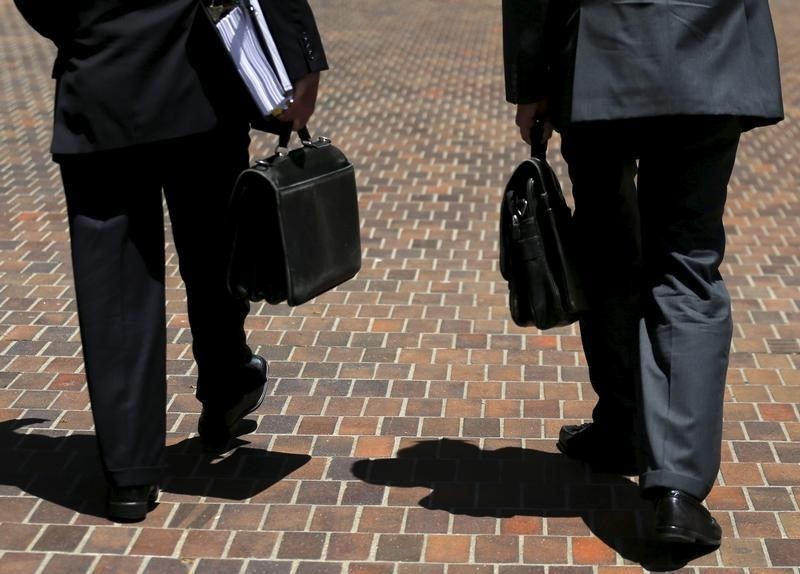By David Ingram and Mica Rosenberg
NEW YORK (Reuters) - Company executives may be quicker to hire lawyers and less likely to cooperate with investigations because of a renewed push by U.S. prosecutors to put individuals in prison instead of only levying big fines on corporations that break the law, lawyers with expertise in white-collar crime cases said.
The Department of Justice, after years of criticism from lawmakers and the general public that people responsible for the 2008-09 financial crisis had not been held accountable, on Wednesday advised prosecutors to take a tougher stand against high-level executives and other employees for wrongdoing under their watch.
In future investigations, corporations will be required to give up all potential evidence against officers and other employees if the business itself hopes to get leniency for cooperating with authorities, the department said in a memo.
The policy will be incorporated into the US Attorneys' Manual, which federal prosecutors look to for guidance.
Corporations put a high value on obtaining leniency, which comes in the form of lower fines or less serious charges, so they often try to cooperate fully with authorities. They frequently hire law firms to conduct internal investigations, with the results later turned over to the government.
Putting into the mix an expectation that some individuals will be charged criminally is a recipe for increased internal conflict in the corporate world, lawyers said on Thursday as they sorted through the implications of the guidelines.
"They are taking an approach of pitting the individuals against the corporations," said Ellen Podgor, a professor at Stetson University College of Law in Gulfport, Florida, who specializes in white-collar crime.
Podgor and others said the result might be that executives or other corporate employees would be less willing to cooperate with an internal investigation or to report possible wrongdoing to their bosses or compliance office.
Executives "should be nervous. They should probably have their own counsel, separate from the corporate counsel," she said.
The law firm Cleary Gottlieb Steen & Hamilton said in a client alert that it expects more corporate officers and employees to seek their own attorneys at early stages of a probe.
The No. 2 official at the Justice Department, Deputy Attorney General Sally Quillian Yates, explained the revision of the guidelines in a speech on Thursday at New York University School of Law.
Yates wrote the guidelines but acknowledged challenges, including the possibility that some corporations may decide "that the benefits of consideration for cooperation with DOJ are not worth the costs of coughing up the high-level executives who perpetrated the misconduct."
Less corporate cooperation could mean fewer settlements, but "if that's what happens, so be it," Yates said, adding that accountability for individuals was the only way to truly deter corporate wrongdoing.
A Justice Department spokeswoman declined to comment beyond Yates' speech.
The interests of a business and its employees can diverge quickly during a criminal investigation, especially if the corporation's lawyers determine that wrongdoing was limited to a few people and that the corporation itself should not be liable.
The Justice Department's memo adds to the incentive for a corporation to toss its own people into the government's arms for a better chance to save itself, lawyers said.
"They are saying they want to know who is doing what all the way from the most powerful person in the company down to the janitor," said Paula Junghans, a partner at Zuckerman Spaeder in Washington who has represented corporate defendants and individuals. "Maybe the most senior person will be able to defend himself, but the janitor or the middle manager won't. Those are the ones that are really going to get hurt."
For corporate board members who may ultimately decide whether to report allegations to the Justice Department, there is also a complicating "human factor" if they are serving up people they know well for prosecution, said Timothy Treanor, a partner at Sidley Austin in New York.

"When it becomes about turning in individuals you know and have had good relationships with, it is perhaps a tougher mental hurdle to get over," he said.